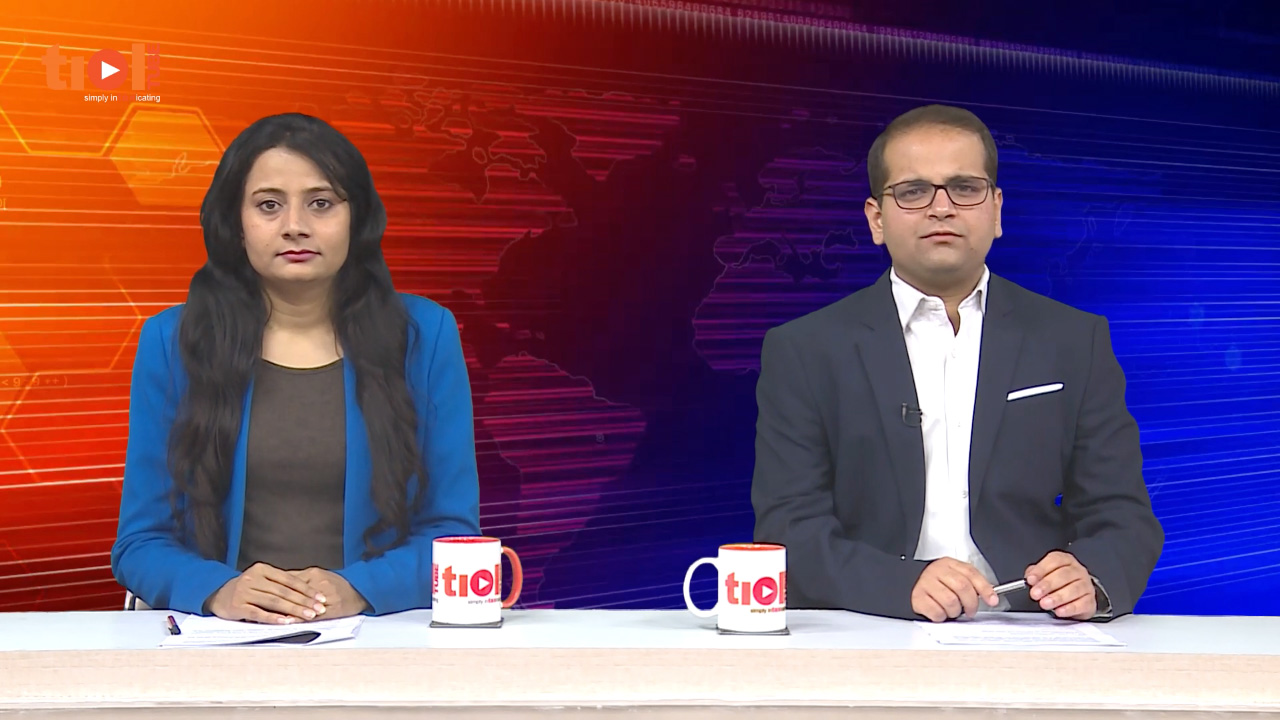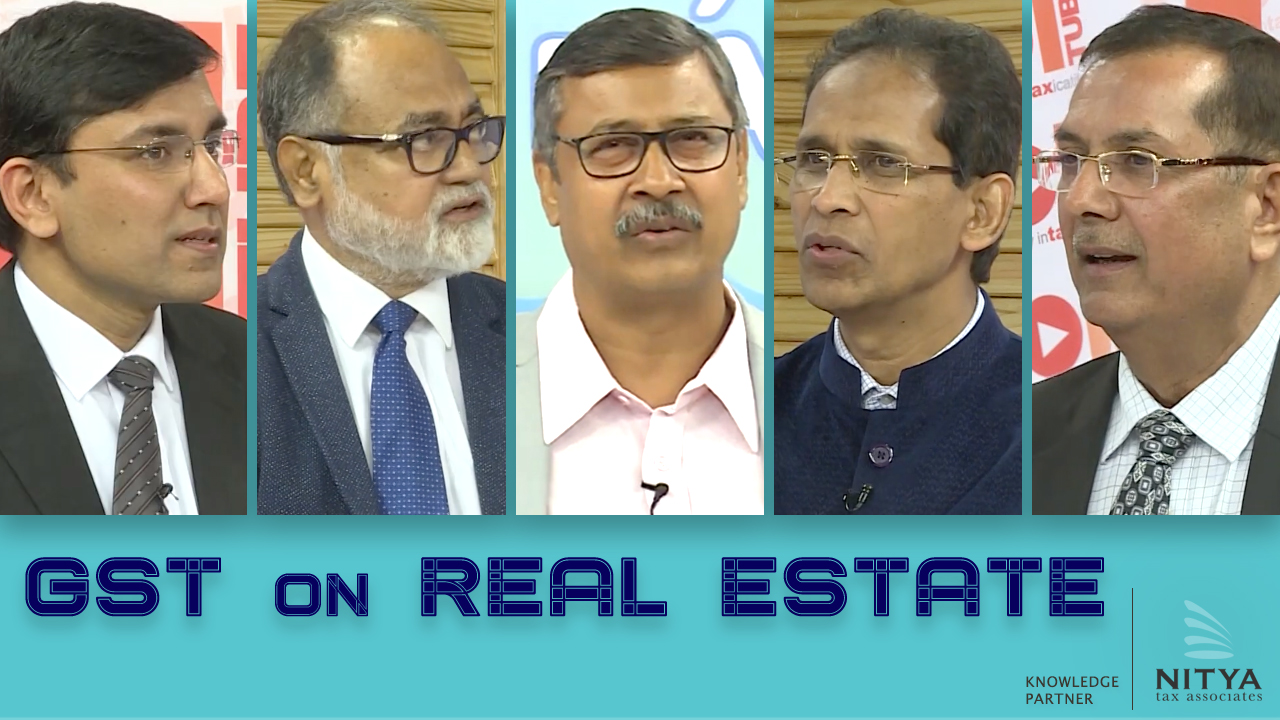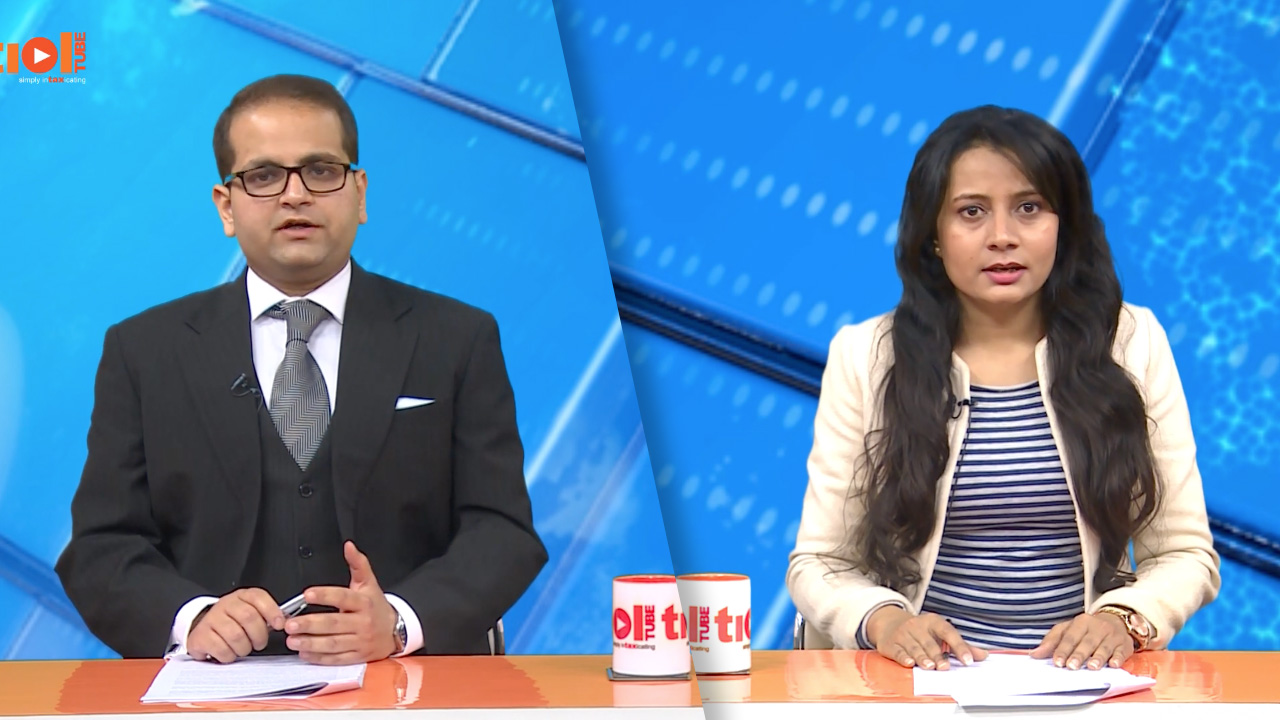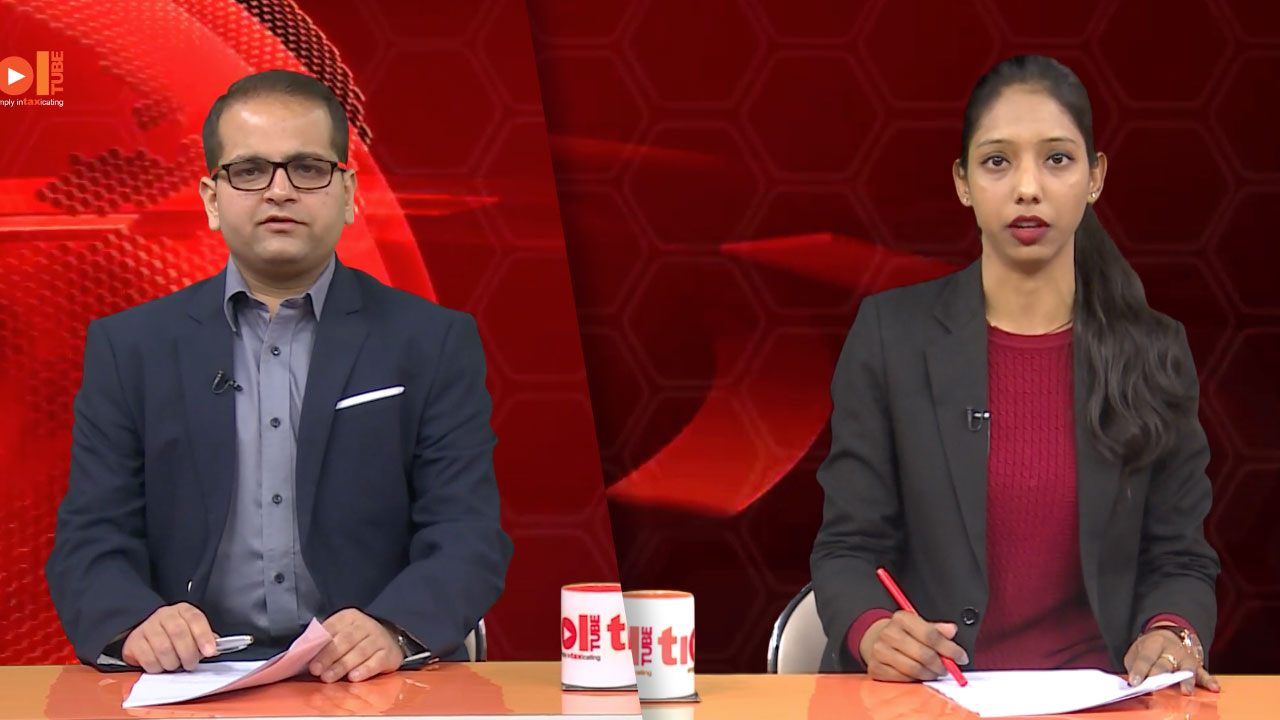|
SERVICE TAX
2019-TIOL-970-CESTAT-DEL National Building Construction Corporation Ltd Vs CCE
ST - The moot controversy involved is as to whether the value of construction material as provided free by M/s.NTPC to assessee for the purpose of providing services under category of commercial or industrial construction services is required to be added in the value of services - The Department in addition to alleging the free construction material as a non-monetary consideration for assessee has also objected the benefit of Notfn 15/2004-ST or Notfn 1/2006 - ST as being not admissible to assessee - This Notification exempts the taxable service provided by a commercial concern to any person in relation to construction service from so much of service tax leviable thereon under Section 66 of the said Act as is in excess of Service Tax calculated on a value which is equivalent to 33% of gross-amount charged from any person by such commercial concern for providing said taxable service - Thus, gross amount charged shall include the construction material if and only if some value is charged for the same - Hence, the construction material supplied by service recipient free of cost, the amount thereof is not the gross amount taxable value as not being charged - However, for the construction material as used by service provider i.e. the assessee is liable to take the benefit of this Notfn - This also clarifies that value of free material provided by the service recipient has not to be included in the gross-value - In addition, the material used by provider, by discharging his tax liability, he is entitled to abatement as mentioned in Notifications herein - The adjudicating authority has committed an error while interpreting the provisions qua valuation of taxable service and has also committed an error while ignoring the settled principle of law - Now coming to the aspect of limitation, the period in dispute is w.e.f. October, 2004 to March, 2006 - The SCN is dated 12.04.2010 - Burden of proof of proving malafide conduct under the proviso to Section 28 of the Act lies with the Revenue that in furtherance of the same specific averments should find mention in SCN, which is the mandatory requirement for commencement of action under the said proviso, and where nothing on record displays a wilful default on the part of assessee, extended period of limitation under said provision couldn't be invoked against assessee - The impugned SCN is being barred by time: CESTAT
- Appeal allowed : DELHI CESTAT
2019-TIOL-969-CESTAT-DEL
Mm Brothers Vs CCE
ST - The assessee is holder of Service Tax Registration for works contract services - During investigation, it was obderved that the assessee have been engaged in providing errection, commissioning and installation services to Jaipur Vidhyuth Vitharan Nigam Limited (JVVNL), Jaipur but were not paying the appropriate amount of Service Tax - Applying the Circular 123/5/2010-TRU to the services still confirmed by adjudicating authority, the providing and fixing of streetlights is taxable - Therefore, the demand for the said category is held to have rightly been confirmed - Electrification is covered under clause 7 of Circular as taxable work - Therefore, this demand is also held to have rightly been confirmed - However, shifting of overhead cables/ wires or along side roads for any reason as widening/renovation of the roads is specifically not taxable as per entry No.1 of the said Circular - Resultantly, the demand confirmed for the same is held to have wrongly confirmed, same is therefore, set aside - Installation of sub-station is also taxable - Cabling work for Railway for the electrification thereof has been made exempted from the tax liability as per entry 8 of Circular - Now coming to the benefit of Composition Scheme and cum-tax benefit, it becomes clear that these are not the work orders for the services simplicitor or for sale of goods simplicitor but involves both the elements in such a manner that the contracts are indivisible - As a result, the contracts are opined to fall under the category of works contract services - It has also been observed that the introduction of work contract service came w.e.f. 1st June, 2007 - The service which is in the nature of Composite Work Contract cannot be put to tax before 1st June, 2007 - Hence, the entire demand confirmed by adjudicating authority for period prior to 2007 is held to have wrongly confirmed - The same is hereby set aside - However, for the subsequent period, since the activity is work contract service and there is a Composition Scheme as per the provisions of Composition Rules issued under Notfn 32/2007 vide which an option is available to pay Service Tax at the rate of 2 % upto 1st of March, 2008 and at the rate of 4 % w.e.f. 1st of March, 2008 on the gross amount charged for the works contract instead of paying the regular duty - The assessee is entitled to opt for Composition Scheme - As regards to limitation, the demand has been raised for period w.e.f. 2005 to the year 2010 - It is only in case of wilful suppression of facts, misrepresentation, collusion, fraud that too with intention to evade tax that the Department can invoke and extended period - The main defence of assessee is his reliance upon a Circular No. 123/5/2010-TRU providing the exemption to most of his activities and that the same was bonafide reason for him to not to pay the Service Tax - The alleged intention of tax evasion is therefore not apparent on assessee - The confirmed demand can be confined only for the year 2009-10 - The major drop of demand otherwise has not challenged by Department - The order to that extent stands upheld: CESTAT
- Appeal partly allowed : DELHI CESTAT
CENTRAL EXCISE
2019-TIOL-971-CESTAT-BANG
New Sharada Industries Vs CCE
CX - Against the order dated 30.03.2007 passed by the Commissioner confirming the Central Excise duty demand of Rs.58,97,063/- and imposition of penalty on the assessee, a proprietorship firm, an appeal was filed before the CESTAT - at the time of hearing, counsel for the appellant submitted that the impugned order dated 30.03.2007 is bad in law and not sustainable as the same has been passed against the dead person Harilal M. Patel who was the sole proprietor of the appellant M/s. New Sharada Industries and who died on 27.12.2011, during the pendency of the present appeal; that after the death of the sole proprietor, Ashok Kumar who is the son of the sole proprietor has filed an affidavit to the effect that he has not succeeded to the business of the deceased and he is carrying on business in his own personal capacity and has also obtained fresh Central Excise Registration certificate in his name; that he is not interested in pursuing the appeal as he is not the transferee of the business nor did he acquire the business of the deceased during the life time of his father as his successor; that there is no legal provision to recover dues from him as the legal heir in view of the law laid down in the case of Dhiren Gandhi - 2010-TIOL-1807-CESTAT-BANG affirmed - 2012-TIOL-433-HC-KAR-CX and approved by the Supreme Court in Shabina Abraham - 2015-TIOL-159-SC-CX - relying upon the decisions cited, the CESTAT set aside the impugned order and allowed the appeal - Revenue filed an appeal before the Karnataka High Court - High Court held that since the legal representative, son, Ashok Patel had himself moved the said application before the Tribunal, he was very much available to be heard in the matter and, therefore, the Tribunal had erred in allowing the said appeal simpliciter on account of the death of the proprietor in question; that the demand raised under the impugned order of the Commissioner could be recovered from the estate of the deceased Harilal M Patel and, therefore, the appeal before Tribunal against that order could not be said to abate with the death of the Proprietor - order of Tribunal dated 30.06.2016 was set aside and the matter was restored/remanded back to the Tribunal for deciding the appeal afresh - Appeal heard by the Tribunal upon remand.
Held: It is a settled law that no proceeding can be initiated against the dead person as it amounts to violation of the principles of natural justice inasmuch as the person who is proceeded against is not alive to defend himself - Further, as per Rule 22 of CESTAT Procedure Rules, 1982, the appeal shall abate on the death of the appellant - appellant was a sole proprietorship concern and Harilal M. Patel was the sole proprietor of the appellant firm who died on 27.12.2011 when the appeal was pending before Tribunal - Ashok Kumar S/o Harilal M. Patel, has not come forward to defend the case of the appellant rather he has filed an affidavit saying that he has no concern with the proprietorship concern and he has not succeeded to the said business and has distanced himself from the appellant - in view of the Apex Court decision in the case of Shabina Abraham v. Collector of Central Excise (supra) no recovery proceedings can be initiated against the dead person - present appeal, therefore, abates after the death of the sole proprietor, Harilal M. Patel - appeal is accordingly disposed of - order of Member (J) concurred with by Member (Technical): CESTAT [para 3, 3.1, 4, 5, 10] - Appeal disposed of
: BANGALORE CESTAT
2019-TIOL-968-CESTAT-ALL
Laxmi Kant Agrawal Vs CCE
CX - The assessee is engaged in manufacture of different excisable goods and also registered with Department for manufacture of MS Ingots, Poster Paper & Media Paper - They were also having separate registration with the Department to undertake processing of Man Made Fabrics - The entire unit situated in the same campus, was controlled by the same set of Directors as well as persons looking after the receipt of raw material, production and dispatch of finished Goods - The main demand against the company is based on the private document i.e. Monthly Dispatch Summary Details (MDSD) recovered from the factory premises of assessee - The said private documents i.e. MDSD has been alleged to have prepared by Shri Ramu Yadav and Shri R.K. Singh on the direction of the directors of the company for which department have relied upon the statement of Shri Ramu Yadav & Shri R.K. Singh - Request of cross-examination of Shri Ramu Yadav & Shri R.K. Singh was allowed by Commissioner, but the Department was unable to produce their witness - It is well settled law that if the Department is not able to produce their witness for cross-examination, then the statement of that witness cannot be relied upon, as held by Himachal Pradesh High Court in case of Arsh Casting Pvt. Ltd. - The said MDSD is not a genuine document as there is no corroborative or positive evidence available on record, showing clandestine removal of the goods - Therefore, demand on the basis of said record-MDSD, is set aside - With respect to demand on the basis of parallel invoices issued by company and resumed from the premises of Shri Mukul Jain, Commission Agent of fabric, the department is mainly relying upon the statements of Shri Mukul Jain, to establish that the goods have been cleared on parallel invoices - Department has not been able to produce Shri Mukul Jain for cross-examination during the adjudicating proceedings, therefore, the said statement of Shri Mukul Jain cannot be relied upon as evidence - There is no other concrete evidence available on record to prove that the company has removed goods on the parallel invoices - The proportionate demand is also set aside - No unaccounted goods were found in the premises of Shri Mukul Jain - Since duty demand is set aside, penalties are liable to be set aside: CESTAT
- Appeals allowed : ALLAHABAD CESTAT
2019-TIOL-967-CESTAT-KOL
L Madanlal Aluminium Ltd Vs CCE
CX - The assessee is engaged in manufacture of aluminium ingot, notch bars and shots - During stock verification, it has been ascertained that there is shortage of stock as reflected in statutory records i. e. Daily Stock Register - The said officers recorded the statement of Shri Madanlal Bagaria, Director of Appellant company who had admitted the duty liability of Rs. 11 lakhs on shortage and paid the duty vide post dated cheques - A further statement was recorded on 05.10.2007 - Thereafter, a SCN was issued to company and its director - The entire demand of duty was raised on the basis of shortage of goods as detected during stock verification conducted on 20.09.2006 - The duty is to be paid on 20.09.2006 i.e. the date on which the shortage has been detected by Central Excise Officers - Therefore, the findings of adjudicating authority that the information of payment of duty was given to department on 09.02.2007 are contrary to the evidence on record - It is on record that Central Excise officers deposited the post dated cheques from 26.10.2006 onwards in the bank for encashment vide TR-6 challans - Hence, the finding of the adjudicating authority is not sustainable - The demand is barred by limitation as the extended period of limitation cannot be invoked - But, there is no need to look into this aspect as assessee accepted the duty liability of Rs. 11 lakhs - By inserting the word 'ad-hoc' in statement dated 05.10.2007, the veracity and truth of the statement dated 20.09.2006 cannot be altered - Hence, there was no requirement to issue SCN as per provisions of Section 11A (2B) as assessee had already paid the duty as ascertained by officers before issuance of SCN - The impugned order is modified to the extent that the demand of Rs. 11 lakhs as deposited by assessee before issuance of SCN is upheld and the balance amount of demand of duty alongwith interest and penalty are set aside: CESTAT
- Appeal partly allowed : KOLKATA CESTAT
CUSTOMS
2019-TIOL-966-CESTAT-KOL
Md Akhtar Hussain Vs CC
Cus - The assessee received the O-I-O dated 21.07.2015 from the office of STRC on 15.5.2017 and filed appeal before the Lower Appellate Authority on 2.7.2017 - The assessee had also deposited 7.5% of penalty amount before the Lower Appellate Authority - Since the order was received on 15.5.2017 and the appeal was filed on 2.7.2017 i.e. well within the statutory period of 60 days - However, the Lower Appellate Authority has taken the date of despatch i.e. 31.7.2015 as the date of service of O-I-O and accordingly dismissed the appeal before him as time barred without going into the merits of the case - There is no delay on the part of assessee in filing of appeal before the Lower Appellate Authority and since he has not decided the appeal on merit, it would be appropriate to remand the matter to Lower Appellate Authority to decide the appeal on merits, without going into the aspect of limitation - Matter remanded to the Lower Appellate Authority to decide on merits: CESTAT
- Matter remanded : KOLKATA CESTAT |
|








